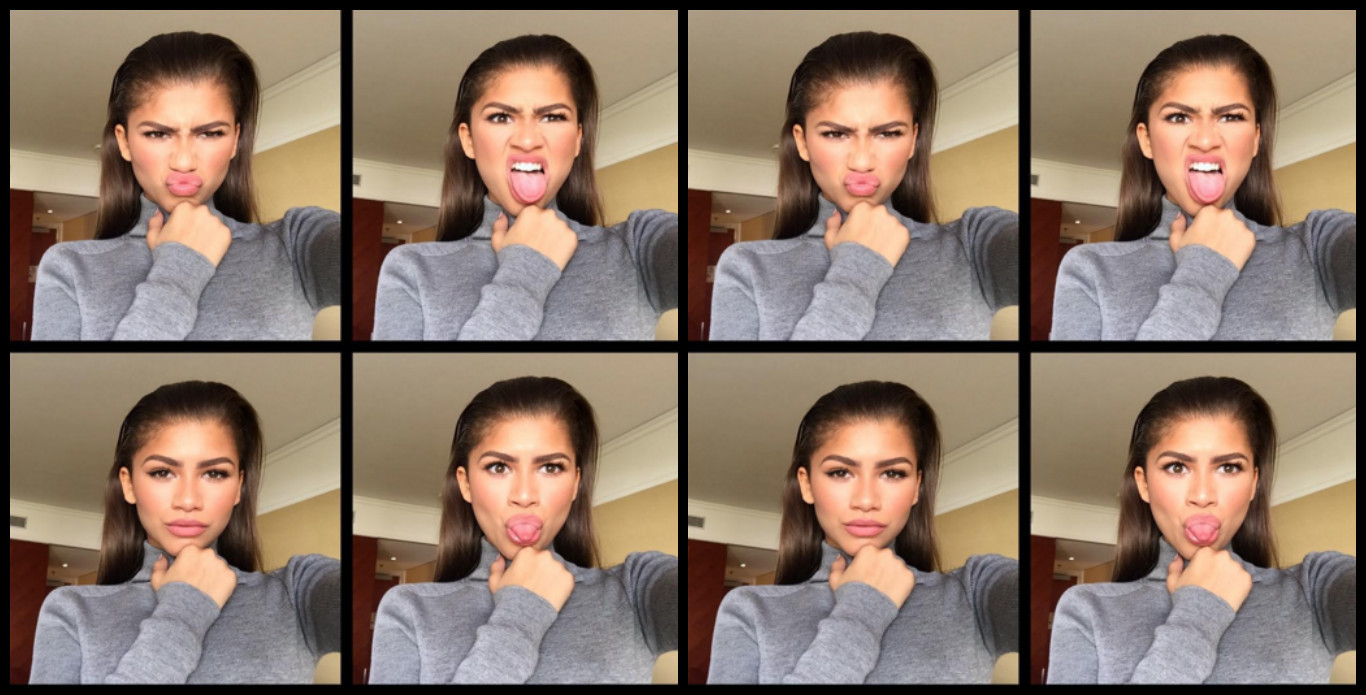We all know that celebrities are generally hyper-retouched in magazine spreads, but a new generation of public figures and fans is not going to stand for the practice.
In the pages of independent fashion magazines and in galleries, an emerging wave of young photographers like Petra Collins is forgoing airbrushing in favor of the realistic and raw. Now, this anti-retouching trend is going beyond niche publications and infiltrating the mainstream. While celebrity photoshoots have been traditionally glammed up and digitally nip-tucked, many stars are speaking out and fighting back against Hollywood’s age-old pressure to be flawless. Thanks to body-positive mega-voices like Amy Schumer, who recently tweeted in praise of Entertainment Weekly for not airbrushing away her size six sexy, and Lena Dunham, whose brand of transparency needs no introduction, young people want total, unfiltered realness.
With the rise of social media, celebrities have a direct conduit to their fans, #NoMakeupSelfies and all. Thanks to Instagram, we know that our favorite actors and singers are not perfectly contoured and bikini ready around the clock, creating a different expectation for the imagery we want to see. And when this expectation feels cheated, celebrities themselves are taking to social media to point out the discrepancies.
19-year-old singer/actress Zendaya recently made headlines when she waged war against Modeliste Magazine, turning to Instagram to speak out against the glossy for running a set of heavily photoshopped images from her cover shoot. Posting the gorgeous original pic alongside the severely augmented edit, she wrote, “Had a new shoot come out today and was shocked when I found my 19 year-old hips and torso quite manipulated. These are the things that make women self conscious, that create the unrealistic ideals of beauty that we have. Anyone who knows who I am knows I stand for honest and pure self love.” As a result, Modeliste‘s editor-In-chief released a public apology, and announced that the magazine planned to publish the complete set of “un-edited and authentic” images. While certainly a victory, it’s yet to be seen if this will be an “aha” moment for publishers. Will they finally recognize that women are craving natural, unaltered role models?
High-profile retouching scandals are nothing new in the publishing world. Last year, pop star Lorde posted a side-by-side mash-up of two photos on her personal Instagram: one in which her skin had been photoshopped into a soft blemish-free blur, and the other which had remained radiant and untouched. The caption read, “Remember, flaws are okay : – )” If impressionable and youthfully beautiful teenagers are being scrutinized and forced to go under the digital knife, what message does this send to women in their 30s, 40s, 50s, and beyond?
And let’s not forget last spring, when a stolen, (allegedly doctored) unretouched image of supermodel Cindy Crawford from Mexican Marie Claire went viral. The controversial image sparked an overwhelmingly positive reaction on social media, with thousands taking to Twitter to comment that Crawford looks “bloody amazing” and “inspiring,” even without retouching. “Sometimes, the images that women see in magazines make them feel inferior—even though the intention is never to make anyone feel less,” said Crawford. Though the leaked image was ultimately confirmed to be a fake, the incident highlighted the everywoman appetite for more honest representations of women’s bodies in the media.
In her own provocative protest against digital manipulation, actress Keira Knightley posed topless for Patrick Demarchelier in a spread for Interview magazine last year. She wanted to show the actual shape of her physique, and breasts, which had been drastically enlarged for the King Arthur movie poster in 2004. Knightley’s body buffed up while doing archery in preparation for the role, but apparently the film execs didn’t trust a muscular chest to sell box office tickets. “I’ve had my body manipulated so many different times for so many different reasons, whether it’s paparazzi photographers or for film posters…That [shoot] was one of the ones where I said: ‘OK, I’m fine doing the topless shot so long as you don’t make them any bigger or retouch.’ Because it does feel important to say it really doesn’t matter what shape you are,” said Knightley to Time of her decision to #FreeTheNipple for the editorial.
Outspoken A-lister and longtime anti-Photoshopping crusader Kate Winslet just signed a (presumably multi-million dollar) contract with cosmetics giant L’Oréal — with a no-retouching clause. The actress wants to set an example for the younger generation of women, and give them something genuine to admire, not just an illusion. “I think they do look to magazines… and women who have been successful in their chosen careers…I would always want to be telling the truth about who I am to that generation because they’ve got to have strong leaders,” Winslet said to E! News‘ Catt Sadler.
With over 80% of 10 year olds expressing a fear of being overweight, and 40-70% of women complaining of body dissatisfaction by age 12, it’s undeniable that women do need role models that teach them self-acceptance, not self-loathing. With some of Hollywood’s biggest names and freshest faces standing firm for what they believe in, we’ll continue to take baby steps toward what’s right, and what’s real. Gone are the days when our media sources can get away with dictating how women’s bodies should be censored or celebrated. Thanks to the democratization of photography proliferated by social media, women (celebrities included) are more in control of their image than ever. It’s time to put a stop to the funhouse mirror, and all who don’t adhere risk being the next target of Amy Schumer’s feminist fury.
Credits
Text Jane Helpern
Image via @zendaya
